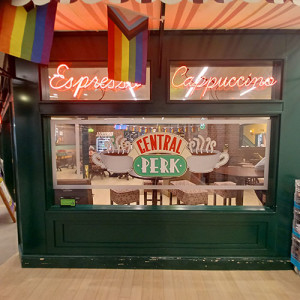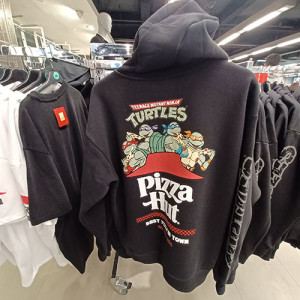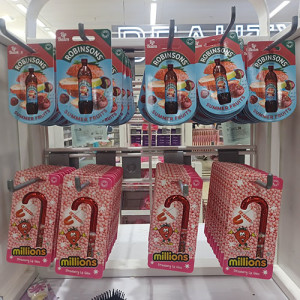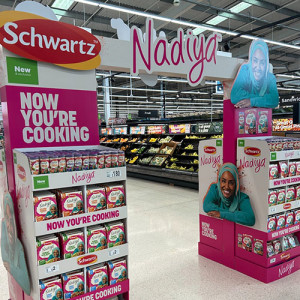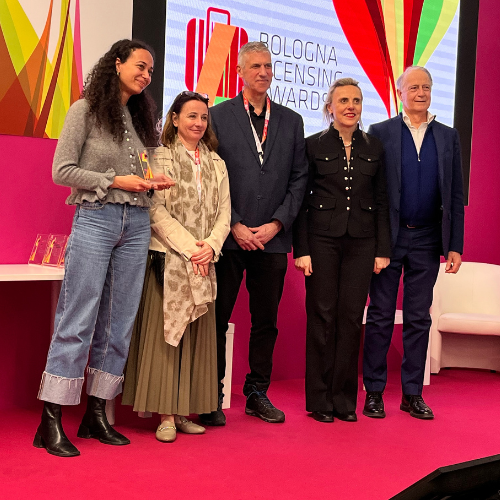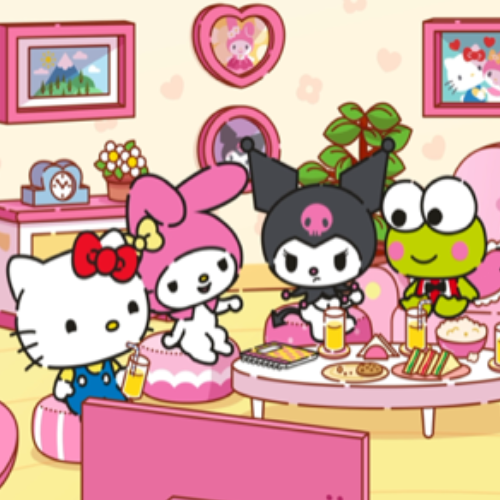Start Licensing’s Ian Downes visits Primark in Manchester and finds out just how it has its finger on the pulse of licensing.
I took a look in Primark this week. I was in Manchester and called into the Market Street store near Piccadilly Gardens. I believe this is one of the largest Primark stores in the estate. The building it is in is a very handsome one with a rich retail history as it was formerly the home of department store Lewis’ and was built in 1877. Shopping has a long history!
The first thing that struck me when I walked into the shop was how busy it was. In fact I called into the store twice at different times in the day and both times it was busy with shoppers shopping as opposed to browsing. The shoppers were filling their baskets. Seeing how busy the shop was reinforced my view that Primark has a winning formula and has found a way of engaging with its customers. Licensing seems to be a trusted part of that formula.
Having had a good look around the shop it seems that Primark has a good handle on licensing generally and is embracing different types of brands within its licensing strategy. It has built a portfolio directly and via suppliers that delivers in different ways. I thought that the current licensing offer was a good measure of the changing face of licensing and reinforces the point that licensing is now a multi rights business. I should say I didn’t cover every blade of grass in-store so this is by no means a comprehensive retail report.
Another observation that I made on my visit was that Primark has embraced the fact that retailing is changing and that retail stores can change accordingly. Again, in many ways the Market Street shop is a good model to look at in regards to the future for retail outlets – especially large scale city centre ones. From a licensing point of view one highlight in this context was the fact that the store has a Central Perk café linked to the Friends TV series. The café is on the ground floor of the shop and takes its design cues from the TV series. This is an interesting example of experiential licensing and a great use of retail space. It adds another dynamic to the shopping experience and another reason to return to the shop.
In a similar vein, this branch of Primark had an in-house barbers and beauty salon. Again adding to the sense that this is a destination store. I can also imagine licensing being applied to these outlets as well. Primark has also embraced the growing awareness and interest in vintage clothing.
It has a dedicated shop in shop, WornWell, which is selling upcycled apparel The vintage range includes a few examples of licensed products and a number of brand names. Again this is a smart move by Primark not least as it is taping into a shopping trend, but I am sure it also resonates with Manchester’s student population. Retailers are seemingly becoming more aware of their local communities and building retail offers that represent local differences and opportunities. As an aside it is easy to think of vintage as a ‘new’ trend but in Liverpool in the 1980s I was a frequent visitor to the vintage clothing shops – I think lots of my 1980s purchases are now back in fashion as vintage vintage!
Primark also had a feature area that was co-curated with an organisation called The Fashion School. I believe this collaboration is centred on getting teenagers from the local community involved in fashion design and upcycling. The shop hosts workshops and classes helping 11 to 17 year olds to acquire skills such as customisation helping them prolong the life of existing and pre worn skills whilst also encouraging them to develop their own look. This is a platform for Primark to develop an outreach programme with the local community coupled with an opportunity to shine a light on topics such as sustainability and upcycling. It is an interesting example for other retailers to look at in regards to community engagement and ways of bringing the community into store.
Switching focus back more directly to licensing, as noted earlier my visit suggested that Primark has its finger very firmly on the licensing pulse. An alternative view could be that Primark is helping shape the direction of travel licensing is taking. If it backs a specific brand, theme or design movement it can be very influential and move the market in a certain direction. Either way, licensing is a noteworthy feature of Primark’s current offering.
Not unexpectedly, Disney features prominently in-store across all ages and brands. There was a large scale Disney 100th anniversary window display, while there were specific ranges for categories such as baby. In this case good use was made of classic characters such as Mickey and Winnie the Pooh. One encouraging aspect of ranges like this one was the design styling used and the finish of the garments. There was a good attention to detail and seemingly a bespoke approach taken in product development.
Primark also featured other themes such as anime and manga, reinforcing the increasing mainstream position these genres have. Primark is also embracing the likes of US sports such as NFL and NBA.
There were also interesting examples of the ‘collab’ model with ranges such as Pizza Hut x Teenage Mutant Ninja Turtles on sale. There doesn’t seem to be a slow down in the appetite for ‘collabs’ – I am guessing they pique consumers interest not least when two worlds they admire collide and for retailers it creates a fresh marketing story.
Primark was also backing other fast developing licensing genres such as music and heritage. It had t-shirts featuring bands such as Gorillaz, Pink Floyd and Guns ’n’ Roses, while on the heritage side it seemed to be tapping into the market directly using design themes such as details from paintings and statues. Gaming is also a category they are supporting with ranges from brands such as Minecraft and Xbox on sale.
Primark doesn’t confine its licensing efforts to apparel, as licensing is used across other product categories including health and beauty. A good example here is the lip balm category which includes licensed ranges such as 7 Up, Robinson’s Fruit Squash, Millions, Mentos and Coca-Cola. Primark has recognised that licensed products can add value to this category from a brand recognition point of view, but also a product perspective with core brand flavours and tastes carrying over to the category. Using brands like this also creates a very exciting and dynamic retail fixture.
Licensing also featured in other categories like dress-up, plush toys, footwear and outerwear. A common theme was that there seemed to be a real commitment to developing products with on trend design and using the featured brands in a way that plays to their strength. While Primark is of course focused on price and value, I took encouragement from the fact that there seemed to be a real effort to make the most of the brands it is featuring from a design point of view.
Outside of Primark I had cause to do a bit of self reflection this week – Looking Out for my own products.
I was delighted to see licensee Schwartz launch its range of Nadiya recipe kits and spice blends this week in Asda. The range has been one developed with direct involvement from Nadiya with a number of visits to Schwartz’s development kitchen. The resulting range is ‘on brand’ and authentic. Schwartz has supported the launch with social media, PR and in-store activations. It really looks good. It really tastes good as well.
It was a feel good moment seeing the range in-store and to paraphrase Nadiya a good example of what licensing ‘can do’ particularly when you embrace an opportunity and work in partnership with all parties.
Ian Downes runs Start Licensing, an independent brand licensing agency. His Twitter handle is @startlicensing – he would welcome your suggestions for what to look out for.








